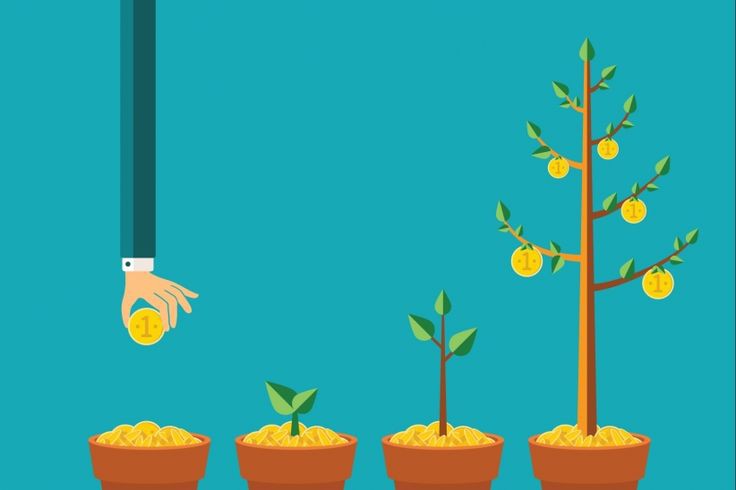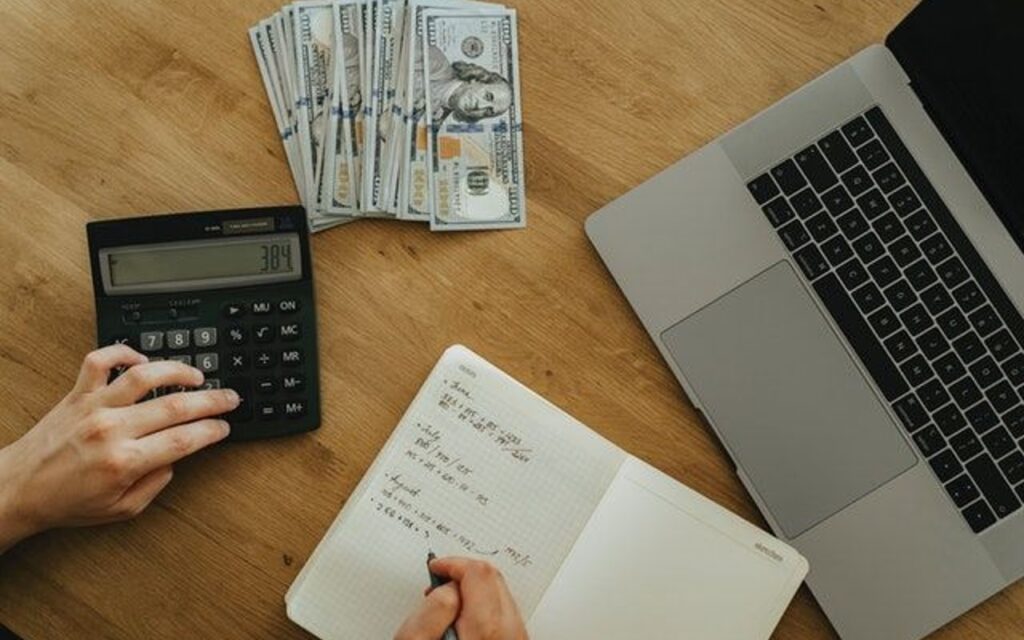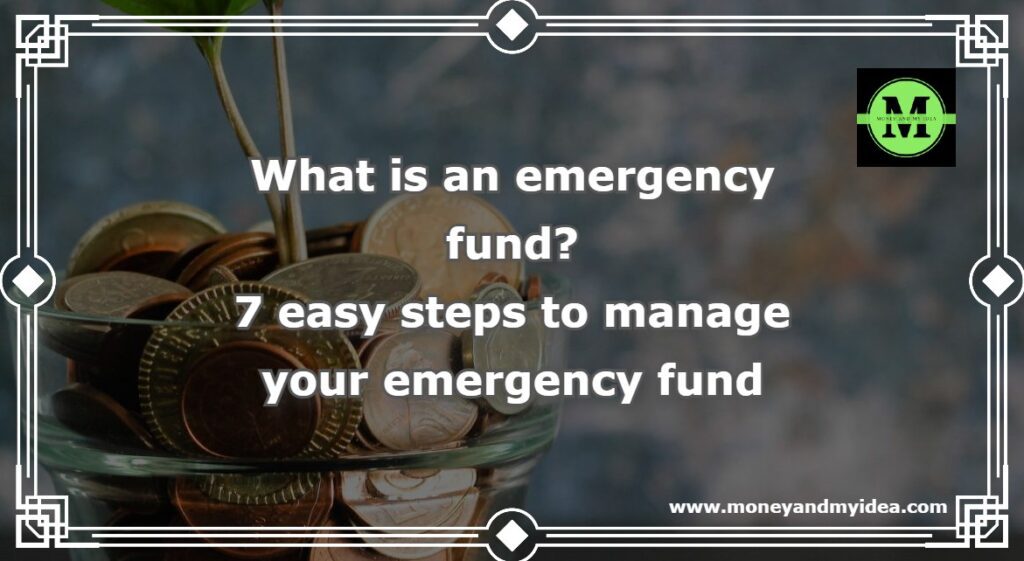If you want know about the emergency fund and how to manage the emergency fund then you are on the right place.
In this article you will understand the all things about EMERGENCY FUND.
I have also mentioned the 7 steps to manage your emergency fund, that will help you in your personal finance.
Table of Contents
ToggleWhat is an emergency fund?
A bank account with money set aside for unanticipated costs, such as medical bills or home or car repairs, is known as an emergency fund. An emergency fund can also assist you in dealing with a loss of income brought on by a protracted illness or job loss.
Using money set aside for unforeseen expenses might lessen the need for and expenses involved with using high-interest credit cards or personal loans to pay for them.


Why it's crucial to have an emergency fund
An emergency fund is an essential part of a solid financial plan. It can help you pay unexpected expenses, and avoid taking on more debt from high-interest credit cards or loans.
By ensuring that you have money on hand in case of an unexpected expense, having an emergency fund can provide you piece of mind.
According to a June 2022 Bankrate survey on emergency savings, 58 percent of Americans are worried about how much money they have set aside. Only four out of ten Americans have enough emergency savings to cover an unforeseen $1,000 bill, according to a January Bankrate poll.
Your only options without an emergency fund might be to use credit cards, take out personal loans, or beg family or friends for money.
Also read this..
How much should you save for an emergency fund?
Three to six months’ worth of expenses should be covered by an emergency fund, but it takes time to save that much money.
Start modest with your goals, such as saving $5 each day, to get you going. Then gradually increase your reserve until it can pay for costs for several months.
Your income and expenses will determine your savings target. Instead of trying to replace all of your income, concentrate on having enough to cover costs.
Aim for nine to twelve months’ worth of spending in an emergency fund for people who are the only provider, operate their own business, or have unpredictable income.
How to store your emergency fund
An accessible high-yield savings account with a competitive interest is the best place to maintain your emergency cash.
Look for banks and credit unions that have Federal Deposit Insurance Corp. (FDIC) or National Credit Union Administration deposit insurance (NCUA).
In comparison to brick-and-mortar banks, online-only banks often provide better returns and cheaper costs, making them attractive choices for emergency savings accounts.
Comparing savings rates and account features is crucial because fees can significantly reduce the amount in your emergency fund.


7 ways to manage your emergency fund
1. Create a budget and identify areas where you can increase your savings.
2. Establish a target for your emergency money.
3. Configure direct deposits.
4. Increase your funds gradually.
5. Put extra money aside
6. Continue to save even after achieving your goals.
7. Start saving right away with a bank account bonus.
Conclusion
The greatest method to save for unforeseen catastrophes is to have an emergency fund. It might do away with the need to rack up credit card debt or take out a personal loan.
Your emergency funds might generate income while you’re accumulating your nest egg if you place them in a high-yield savings account.
You may avoid spending that money by keeping an emergency fund separate from your checking account, which also guarantees that you will have it on hand in case of an emergency.
Planning ahead is the best method to ensure that you can handle a potentially challenging circumstance in the future because emergencies can come whether you’re ready for them or not.













Pingback: What is Mutual fund | Types of mutual fund. - Money & My Idea